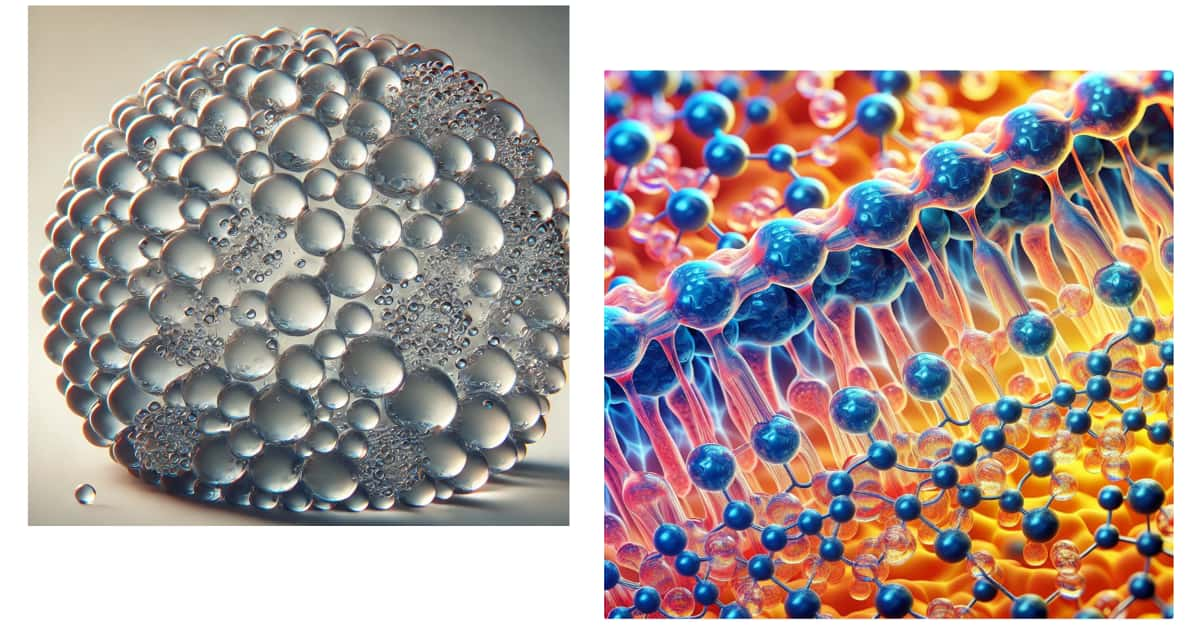- 5.3Impact Factor
- 7.6CiteScore
- 13 daysTime to First Decision
Phase Transition and Behavior of Gels
This special issue belongs to the section “Gel Analysis and Characterization“.
Special Issue Information
Dear Colleagues,
Phase transition in the formation of gels is a vital phenomenon linked to many materials' morphological properties. A phase transition occurs in polymeric gels when a polymer sol reaches a critical concentration or temperature. In the specific case of the sol-gel process, where a condensation reaction occurs, phase separation is induced through the polymerization process of precursor materials. The most relevant phenomenon is the moment the structure “freezes” during the phase separation. Entropic and enthalpic changes in the system will induce the phenomenon while polymerization occurs. Many parameters, like the polarity of the surrounding solvent, precursor composition, temperature, and pH, influence the phase separation and, consequentially, the final characteristics of the desired materials. Despite multiple works on gels and their derived materials, the connection of the final properties to phase separation and transition remains sparse in the literature. These materials can be used in multiple applications like environmental remediation, catalysis, semiconductors, and advanced materials, which are currently in high demand.
This Special Issue on “Phase Transition and Behavior of Gels” is dedicated to studying and understanding phase transition on the final properties of gels and its derived materials in all research fields. New explanations are encouraged to push the topic forward and deepen the knowledge surrounding this topic, which we believe is behind the creation of many advanced materials linked to relevant applications. Topics of interest include, but are not limited to, gel preparation methods, material characterization, and potential applications of these materials.
Dr. Mário Vale
Dr. Beatriz Trindade Barrocas
Guest Editors
Manuscript Submission Information
Manuscripts should be submitted online at www.mdpi.com by registering and logging in to this website. Once you are registered, click here to go to the submission form. Manuscripts can be submitted until the deadline. All submissions that pass pre-check are peer-reviewed. Accepted papers will be published continuously in the journal (as soon as accepted) and will be listed together on the special issue website. Research articles, review articles as well as short communications are invited. For planned papers, a title and short abstract (about 250 words) can be sent to the Editorial Office for assessment.
Submitted manuscripts should not have been published previously, nor be under consideration for publication elsewhere (except conference proceedings papers). All manuscripts are thoroughly refereed through a single-blind peer-review process. A guide for authors and other relevant information for submission of manuscripts is available on the Instructions for Authors page. Gels is an international peer-reviewed open access monthly journal published by MDPI.
Please visit the Instructions for Authors page before submitting a manuscript. The Article Processing Charge (APC) for publication in this open access journal is 2100 CHF (Swiss Francs). Submitted papers should be well formatted and use good English. Authors may use MDPI's English editing service prior to publication or during author revisions.
Keywords
- gels
- phase seperation
- environmental remediation
- catalysis
- semiconductors
- advanced materials

Benefits of Publishing in a Special Issue
- Ease of navigation: Grouping papers by topic helps scholars navigate broad scope journals more efficiently.
- Greater discoverability: Special Issues support the reach and impact of scientific research. Articles in Special Issues are more discoverable and cited more frequently.
- Expansion of research network: Special Issues facilitate connections among authors, fostering scientific collaborations.
- External promotion: Articles in Special Issues are often promoted through the journal's social media, increasing their visibility.
- e-Book format: Special Issues with more than 10 articles can be published as dedicated e-books, ensuring wide and rapid dissemination.

